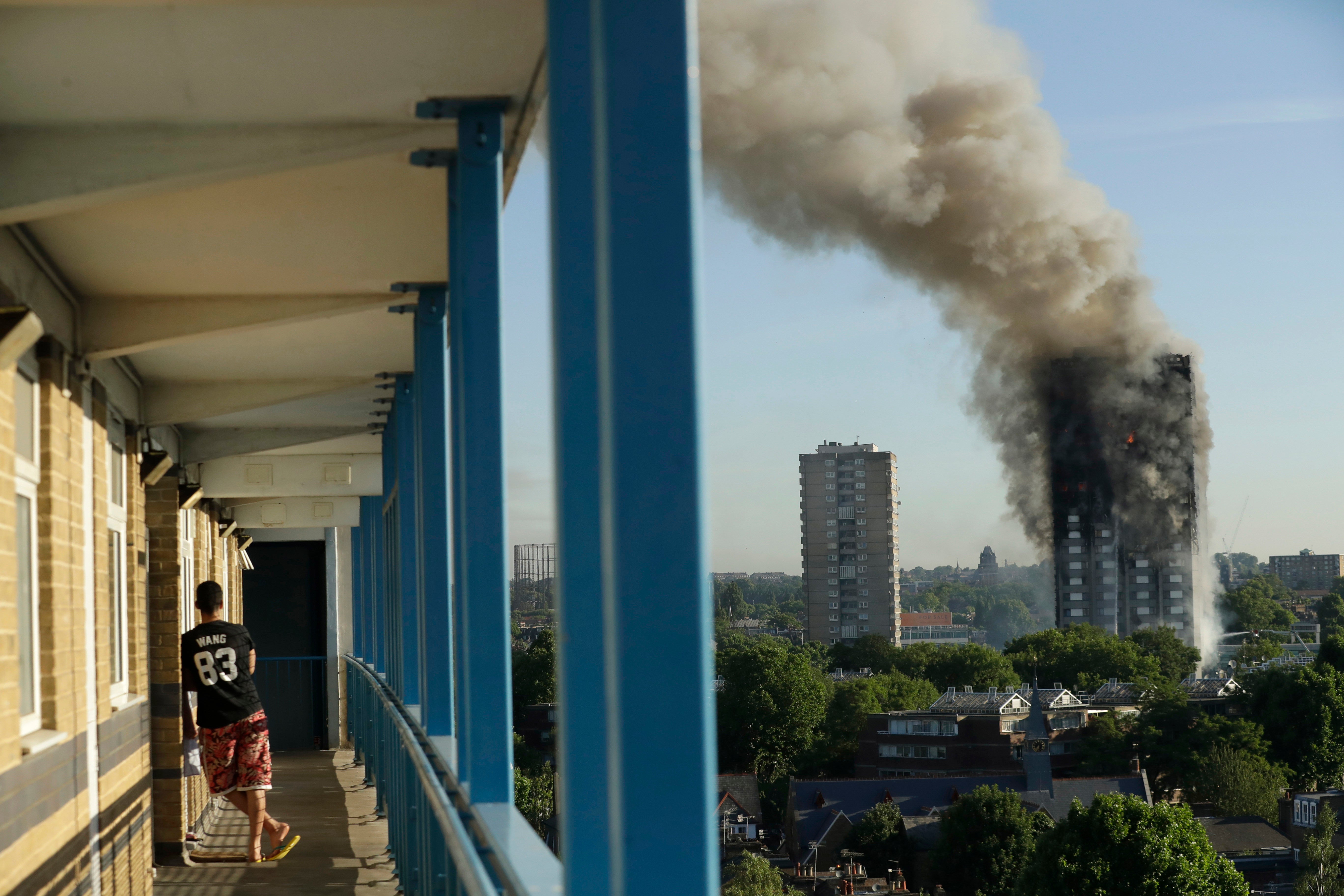Commercial greed turned Grenfell into a death trap
Letters to the editor: our readers share their views. Please send your letters to letters@independent.co.uk

One day, in some future news item, we may see that, during an earthquake in a third-world country, a high-rise building has collapsed, killing its occupants while they slept, and that its collapse was likely due to the builder or developer not fitting earthquake resistance, through a mix of corruption, neglect, incompetence, failure or absence of government regulation.
If we do, we cannot now shake our heads in incomprehension and disbelief that any government could allow such a thing to happen. After the Grenfell report, it must be clear that we are no better off than they.
Indeed, our governments over the past 40 years have possibly been more culpable, as previously effective regulations have either been weakened or, worse, given over to self-regulation.
This has happened not only in the construction industry, but many others: the deregulation of food preparation in the 1980s and 1990s – which, arguably, led to mad cow disease and new variant CJD, from which people are still dying; and of financial services, both here and the United States, which was likely the cause of the 2008 crash.
It is hard to understand why successive British governments have done this and created such a mess. Do they really think we want cheaper meat that could be infected with a deadly disease, or have slightly higher interest on our savings that could be swallowed up in a crash, or pay a lower rent for an apartment which could catch fire and kill us?
Or is it that commercial interests always come first when it is they who contribute to party funds?
Richard Swinney
Gateshead
Grenfell’s other guilty secret
I have emailed my MP to question how the country’s justice system fares seven years after the Grenfell fire ("Justice can no longer be denied to the Grenfell families", Thursday 5 September). For it appears to be accountable for delaying justice so that the powerful are not accountable, and may never be.
You could say that failures of justice are now more important than finding individual engineers who did not test cladding adequately.
Bill Attwood
Address supplied
Who forgot about Grenfell?
In her Voices piece about the Grenfell fire (“I’ve campaigned for Grenfell victims and survivors for years – today’s report has left me seething”, Thursday 5 September), Emma Dent Coad forgot to explain how her four years as a councillor on Kensington and Chelsea’s tenant management organisation may have contributed to the disaster.
Bobbie Vincent-Emery
Address supplied
A Gallic shrug
Appointing Michel Barnier – an experienced politician and minister well known in the UK and EU as Brexit negotiator – as the French prime minister seems a logical choice (“Former Brexit negotiator Michel Barnier named France’s new prime minister”, Thursday 5 September). And not just because the left-wing New Popular Front (NFP), dominated by Jean-Luc Melenchon, did not come first in the July elections.
The NFP is a rapidly concocted mix of the ultra-left LFI, socialists, ecologists and communists. Together, they won 190 seats, some 34 per cent of the vote.
However, Ensemble (“Together”), the political coalition formed between Emmanuel Macron’s centrist Renaissance party and Barnier’s centre-right Republicans, obtained more – 230 seats, making them the largest bloc in parliament.
That 73-year-old Barnier has been called to form a government is called democracy.
Peter Fieldman
Paris
Is this the Brexit dividend we’ve been waiting for…?
It appears that we are on the verge of exporting our prisoners to Estonia, a country whose national coffers could be swollen by a £30m payment, courtesy of the British taxpayer ("British prisoners could be sent to Estonian jails in bid to ease overcrowding", Friday 6 September).
We must ensure that only our highest quality inmates, convicted of the most heinous crimes, are sent to this Baltic nation. Who says Brexit is not working?
David Platts
Newark, Nottinghamshire
Czech mate
In James Moore’s report on the proposed changes to the post (“Royal Mail must offer something back for cutting Saturday deliveries”, Thursday 5 September), he refers to the proposed takeover by Czech billionaire Daniel Kretínsky’s EP Group, currently being examined by the government.
It is mentioned that the group promises to keep the HQ in the UK for a minimum of five years. If it were ever to be relocated elsewhere after this, should not the “Royal” in Royal Mail be removed?
Jeffrey Seagrave
Wellingborough, Northants






Join our commenting forum
Join thought-provoking conversations, follow other Independent readers and see their replies
Comments